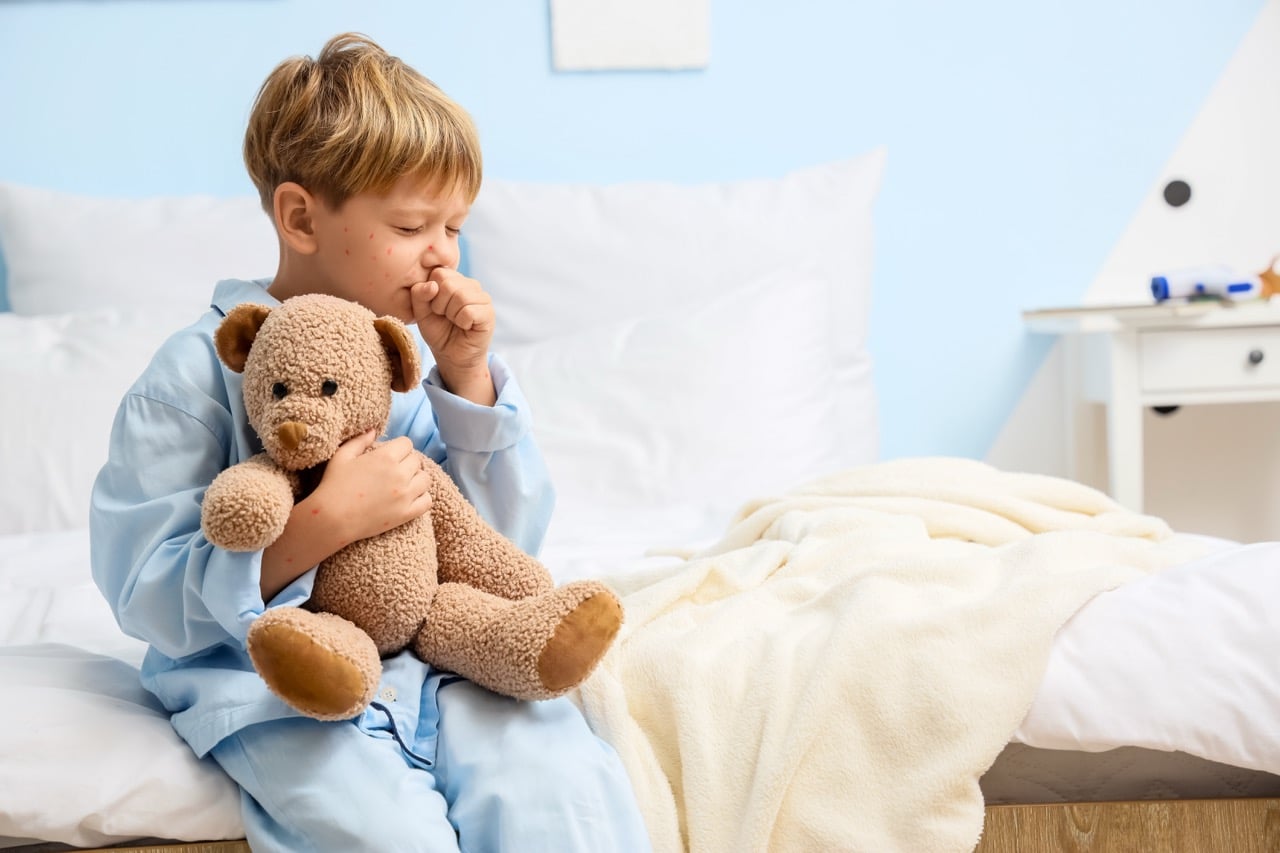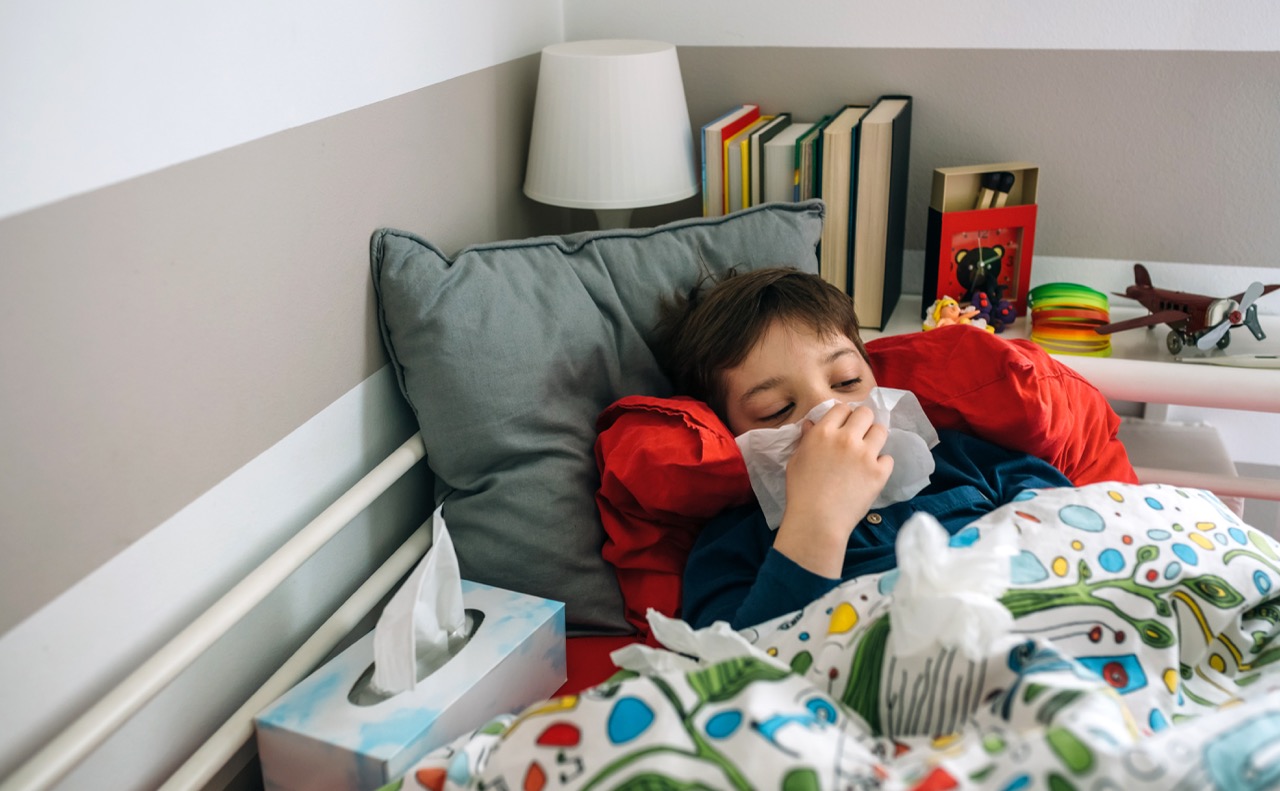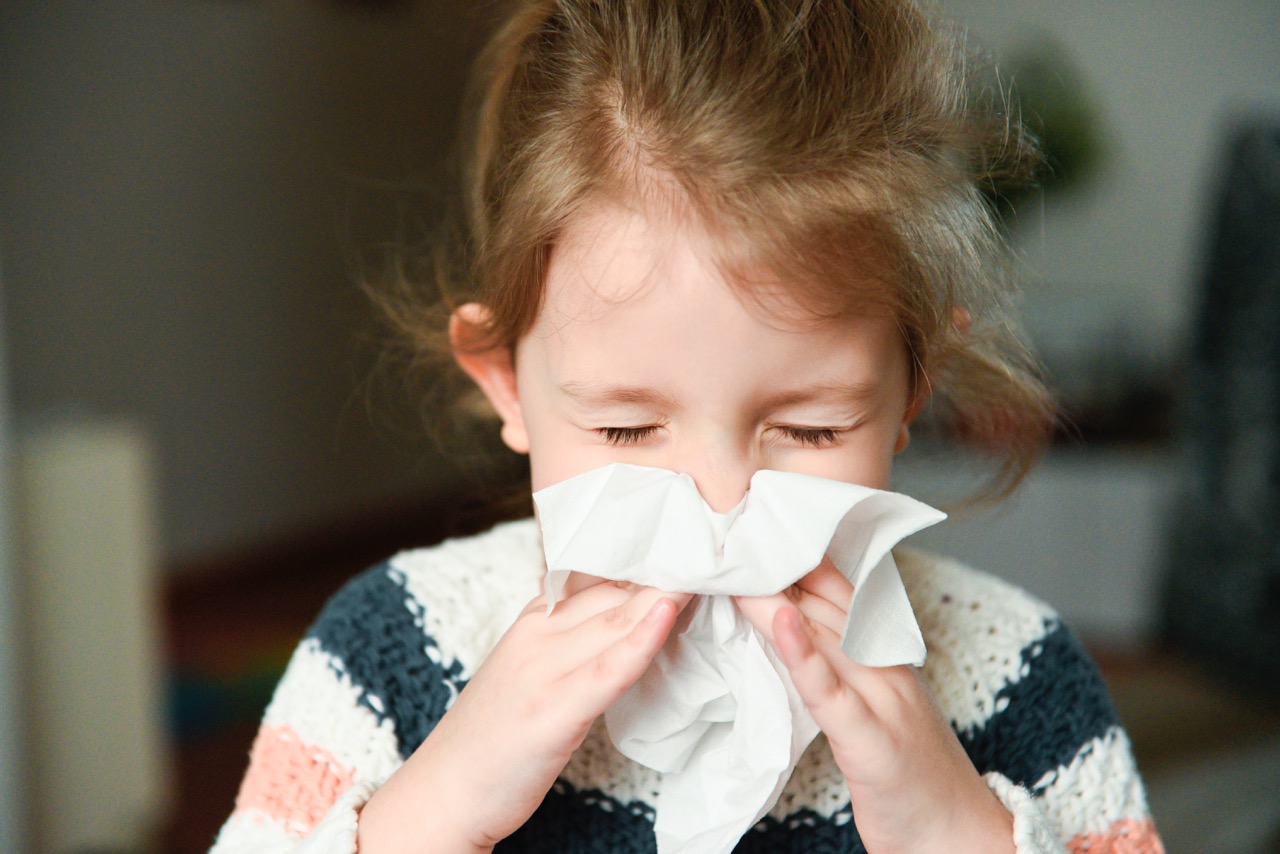Recognizing Viral Infections in Children and When to Seek Care
Viral infections in children represent one of the most common reasons families visit pediatric healthcare providers each year. Children develop on average six viral respiratory tract infections annually, making these illnesses a regular part of childhood. Symptoms often mimic bacterial infections, making professional evaluation important for proper treatment decisions.
At All Kidz Urgent Care, we diagnose and treat viral infections in children safely to help families get answers fast. Understanding how to recognize symptoms and when to seek medical attention protects children from unnecessary complications while avoiding inappropriate antibiotic use.
Understanding Viral Infections in Kids
Viral infections in children occur when small infectious organisms invade living cells to reproduce and spread throughout the body. These infections spread easily among children in schools and daycares through respiratory droplets, close contact, and contaminated surfaces. Young children have developing immune systems, making them more susceptible to frequent infections.
Most viral infections are not serious and resolve without specific medical treatment beyond symptom management. However, careful observation remains important to prevent complications that occasionally develop. Child viral illness typically includes diverse conditions affecting different body systems. Additionally, pediatric viral infection patterns change seasonally with certain viruses circulating more during specific times of year.
Common viruses affecting children include:
- Respiratory syncytial virus (RSV) causing bronchiolitis and pneumonia
- Influenza causing sudden high fever and body aches
- Hand-foot-mouth disease causing blisters on hands, feet, and mouth
- Common cold viruses including rhinovirus causing congestion and cough
- Rotavirus causing vomiting and diarrhea
- Adenovirus causing respiratory and gastrointestinal symptoms
Understanding which viral infections require medical attention versus home care helps families respond appropriately.
Common Symptoms of Viral Infections in Children
Overlapping symptoms make early recognition of viral infections challenging for parents and healthcare providers alike. Many different viruses produce similar symptoms affecting respiratory, gastrointestinal, or other body systems. Gradual onset of cough, runny nose, or mild fever usually suggests a viral source rather than bacterial infection.
Watch for these common signs indicating viral infections in children:
- Fever or chills ranging from low-grade to high temperatures
- Sore throat or cough that may be dry or productive
- Runny or stuffy nose with clear or colored discharge
- Fatigue and body aches affecting energy levels and activity
- Rash or red eyes accompanying respiratory or systemic symptoms
- Loss of appetite reducing food intake temporarily during illness
When Symptoms May Signal Something More Serious
Certain warning signs indicate viral infections require urgent medical evaluation. High fever exceeding 102 degrees Fahrenheit, especially in infants under three months, warrants immediate assessment. Dehydration signs including decreased urination, dry mouth, or extreme lethargy need prompt attention. Persistent vomiting preventing fluid intake creates dangerous situations requiring professional intervention quickly.
Visit urgent care when breathing difficulties, severe pain, or unusual behavioral changes accompany typical viral symptoms in your child.
Viral vs. Bacterial Infections – Knowing the Difference
Symptoms of viral infections in children often overlap with bacterial infections, making differentiation challenging without medical evaluation. Both types cause fever, fatigue, and various body system symptoms. However, treatments differ significantly since antibiotics only work against bacteria and provide no benefit for viruses.
Why Antibiotics Don’t Work for Viral Infections
Antibiotics target bacteria rather than viruses and cannot cure viral infections in children. Using antibiotics inappropriately contributes to antibiotic resistance, making future bacterial infections harder to treat. Overuse also causes unnecessary side effects and expenses without improving recovery times. Healthcare providers carefully evaluate symptoms to determine whether infections are likely bacterial or viral before prescribing medications.
If you’re unsure whether your child’s symptoms are viral or bacterial, visit All Kidz Urgent Care for same-day evaluation. Understanding the difference between bacterial and viral infection in kids helps parents make informed decisions about seeking medical care and managing expectations for treatment approaches.
How Doctors Diagnose Viral Infections in Children
Healthcare providers diagnose most viral infections in children through clinical evaluation based on symptom patterns and physical examination findings. At All Kidz Urgent Care, our pediatric team performs thorough assessments including rapid flu and RSV testing when indicated. COVID-19 testing may be recommended if symptoms suggest possible coronavirus infection. Comprehensive ear, throat, and chest examinations help identify infection locations and severity levels.
Most diagnoses remain clinical and do not require antibiotics or additional laboratory testing beyond rapid diagnostic tests. Physical findings combined with symptom history typically provide sufficient information for accurate diagnosis. Learn more about pediatric urgent care services at All Kidz Urgent Care for comprehensive evaluation when viral infections in children cause concerning symptoms.
Home Care for Mild Viral Infections
Most viral infections in children resolve with supportive home care focused on comfort and symptom management. Evidence-based strategies help children feel better while their immune systems fight infections naturally. Proper home treatment reduces unnecessary medical visits while ensuring safe recovery.
Implement these effective care strategies:
- Keep your child well hydrated with water, clear broths, or electrolyte solutions
- Use saline nasal spray to thin secretions and ease breathing
- Run a humidifier at night to add moisture and soothe airways
- Encourage sleep and quiet play allowing energy for healing
- Avoid cough suppressants under age 6 unless prescribed by healthcare providers
- Give acetaminophen or ibuprofen per pediatrician guidance for fever and discomfort
Understanding how to treat viral infections in children at home empowers parents to provide effective comfort care during illness.
When to Visit Pediatric Urgent Care
Certain symptoms indicate viral infections in children require professional medical evaluation beyond home care measures. Prolonged fever lasting more than three days suggests possible complications needing assessment. Ear pain may indicate secondary bacterial infection requiring antibiotic treatment. Wheezing or difficulty breathing warrants immediate medical attention regardless of other symptoms.
Dehydration develops quickly in young children and requires professional intervention to prevent serious complications. Parents should seek urgent care when viral infections in children cause breathing trouble, high fever, or lasting fatigue that doesn’t improve with rest. Early evaluation prevents complications like pneumonia or ear infections that sometimes follow viral illnesses.
Preventing Viral Infections in Children
Prevention strategies significantly reduce the frequency and severity of viral infections in children throughout the year. Proper hand hygiene remains the single most effective method for preventing transmission. Teaching children to wash hands thoroughly for at least 20 seconds with soap and water stops viruses before they cause illness.
Vaccination provides crucial protection against preventable viral infections in children including influenza, rotavirus, and COVID-19. Maintaining healthy diet, adequate sleep, and proper hydration supports immune system function. Routine checkups allow pediatricians to monitor development and ensure vaccinations remain current. Understanding how to prevent viral infections in children and implementing child flu prevention tips creates healthier environments for families.
Why Choose All Kidz Urgent Care for Viral Infections
At All Kidz Urgent Care, we specialize in diagnosing and treating viral infections in children quickly and compassionately. Our experienced pediatric staff understands childhood illnesses and provides family-friendly care in a welcoming environment. Rapid testing capabilities deliver fast results for influenza, RSV, and COVID-19 when needed.
We offer convenient evening and weekend hours with same-day visits for families needing prompt evaluation. Our child-focused approach reduces anxiety while ensuring thorough medical assessment and appropriate treatment recommendations for viral infections in children.
Helping Kids Recover Faster
Parents should monitor symptoms carefully and trust their instincts when something seems wrong despite typical viral illness patterns. Most viral infections in children resolve quickly with proper care, but timely professional guidance ensures safe recovery. Supporting your child through illness with appropriate home care and medical evaluation when needed promotes faster healing.
Visit All Kidz Urgent Care in Torrance for expert pediatric care today when viral infections in children cause concern.
Visit us at: 2927 Rolling Hills Road, Torrance, CA 90505
Call us: +1 310-292-0054
Email: contactus@allkidzurgentcare.com




